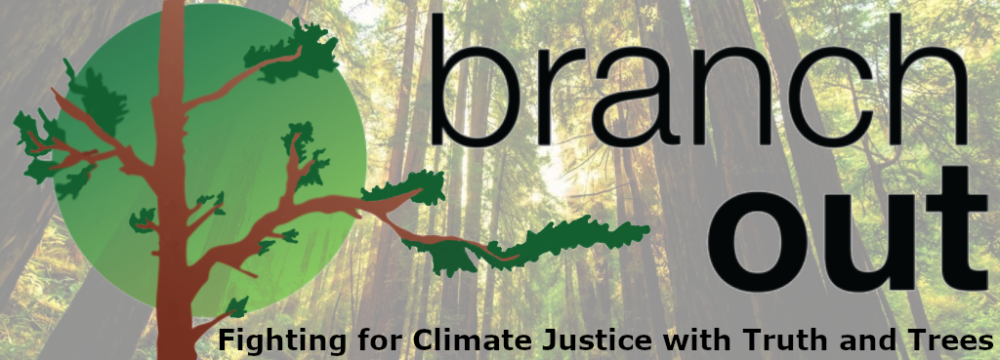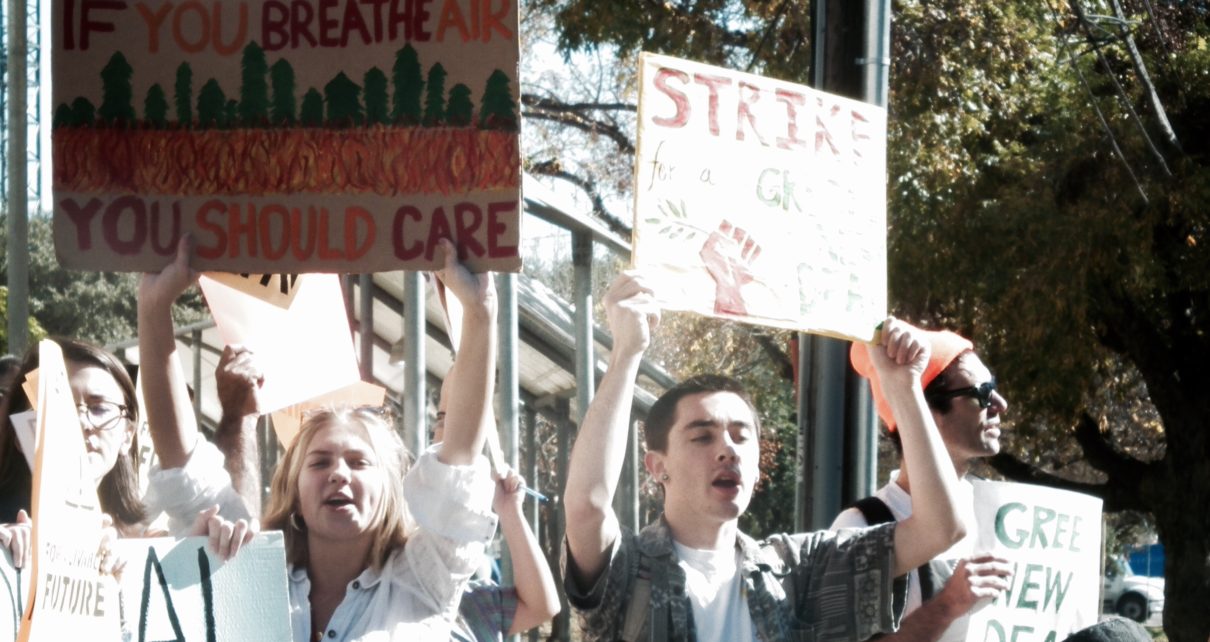As global greenhouse gas (GHG) emissions threaten the world with irreversible climate collapse, activists around the United States and the world have turned to fossil fuel divestment as a major strategy to stop fossil fuel extraction. Experts agree that global warming is caused by humans burning fossil fuels and that it will continue to accelerate and intensify tragic climate disasters that disproportionately impact people who are already underprivileged. The hope is that divestment will cut off financial resources to the fossil fuel industry, starting a chain reaction that will lead to lower global GHG emissions, and make the crisis less severe.
With the price of West Texas oil recently going into negative numbers, the financial payout of oil and gas investments looks increasingly bleak. Branch Out has previously reported how the industry is in such financial trouble, they are looking to benefit from government bailouts aimed at mitigating the economic turmoil caused by the COVID-19 pandemic.
The US is the top producer of oil in the world, producing about 15 million barrels every day. In the past several years, the latest oil and gas ‘boom’ has aimed to bring bigger profits for fossil fuel companies. Despite the current financial hardships, the industry still has plans to expand.
Fossil fuel companies are planning to build 150 new plants and they plan to expand the drilling over the next five years. This could result in the release of as much greenhouse gas pollutions that could even double the amount of gases that are being released at this time, according to the Environmental Integrity Project. This, of course also comes with the expansion of drilling sites, which are increasingly reaching residential areas, putting not only fossil fuel workers, but all people at risk of cancer and respiratory problems, let alone contributing to global GHG emissions.
This new infrastructure to export natural gas would be one of the biggest sources of emissions and six of the top-10 greenhouse-gas emitting facilities are or will be in the Lone Star State.
Yes, you heard it correctly: Home, Sweet home Texas!
A new report written by the Environmental Integrity Project reveals ‘Companies that extract or refine oil and gas, export natural gas, or manufacture petrochemicals have permits to release up to 227 millions tons of additional greenhouse gas pollution by the end of 2025’ that alone will represent a 30 percent rise over the already millions of tons emitted by the industry.
Divestment victories and challenges
Fossil Fuel Divestment aims to keep the oil in the ground. It is asking all stockholders, executives and institutions to move their money out of oil, coal and gas industries. It’s the fastest-growing campaign that could potentially gain enough power to tear down these industries from the inside.
More than 800 major institutions and individuals around the world have in some way committed to fossil fuel divestment, according to The Guardian.
This climate campaign began to gain speed around 2012 when 350.org and students from major universities decided it was time to reinvest toward clean and renewable energy sources before it was too late. The University of Glasgow in the UK became the first in Europe to divest from the fossil fuel companies in 2014, and as a result, other universities followed its path.
The largest University to divest its endowment so far is the University of California System. After more than six years of struggle and protest from students, faculty, and staff, the UC Regents announced that the UC was eliminating its fossil fuel investments.
Their 13.4 billion endowment and the 70 billion pension fund should now be Fossil Free. It is considered the largest divestment of any university ever.
The UC’s chief investments officer Jagdeep Singh Bachher wrote “We believe hanging on to fossil fuels assets is a financial risk.”
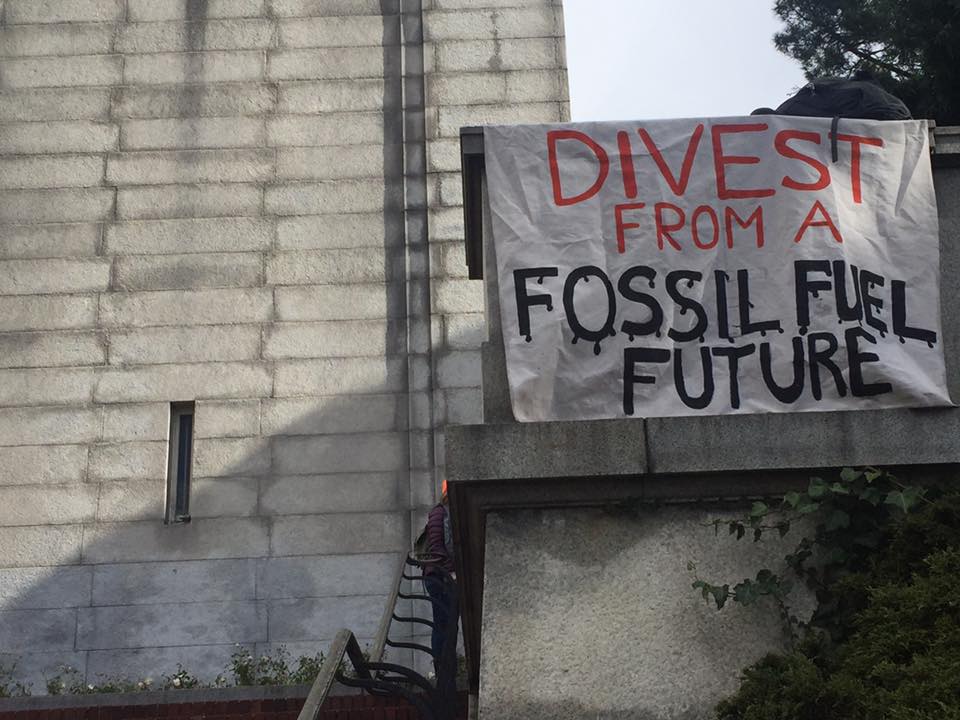
Branch Out spoke with Sarah Bancroft, a recently elected ASUC Senator at UC Berkeley and a member of Fossil Free Cal, one of the groups that helped win divestment at the UC system.
“I joined Fossil Free Cal in January of 2018. … the campaign was about seven years long and I came in around year five, so… Our strategy was, we had active Fossil Free chapters across four California campuses. … We had a pretty strong presence in terms of student involvement.”
Bancroft explained that the high level of student involvement in protests had built up over the years, and “That allowed us to have the Regents and the chief investments office of the UC take us really seriously as a persistent and strong force of student voices.”
Leading up to the 2019 victory, Fossil Free Cal met with Bachher and started flooding his office with letters in support of divestment. The “most pivotal moment” of the campaign’s final year, according to Bancroft, came when 75% of faculty across the UC system voted in favor of divestment showing that students and faculty were both “on the same page.”
While Bancroft expressed that she is proud that the movement achieved divestment, she remains frustrated that Bachher’s framing of the decision as a purely financial one does not give credit to the years of student climate activism, nor does it call out the environmental, moral and political problems associated with the fossil fuel industry.
“The advice I would have [for other divestment campaigns] is a couple main things; one would be to really focus on building coalitions with maybe seemingly different groups … and at the end of the day having an analysis within your campaign that includes other social and environmental justice aims is really going to make the movement stronger.”
Across the country, an even more recent divestment victory came at American University in Washington, DC. Fossil Free AU was formed in 2012, and in 2018 they protested outside of a Board of Trustees meeting. On this last April 22nd, 2020 AU University students announced their success on their fossil fuel divestment campaign
Marley Wiest, a spokesperson from Fossil Free AU said: “While Fossil Free AU applauds the University’s decision to divest their endowment from the destructive fossil fuel industry, this is only one step towards a just university.”
In 2013, students voted on a referendum to support divestment and it was the major factor. Student Government worked alongside Fossil Free AU and they together received a response from the Board of Trustees and forced them to take a position.
Students from Harvard University have also been trying to remove the $39 billion endowment of investments in fossil fuels, and even though Harvard claims that its number one priority, right now is ‘Climate Change.’ Students haven’t yet succeeded. Why is that?
As someone once said:
“ Unless there is political pressure to change, nothing will change.”
The political pressure is still building, and victory sometimes comes slowly. Despite many major Universities continuing to invest in fossil fuels, other significant businesses and individuals have committed to divestment. It came as a surprise when even the Heirs of the Rockefeller Family, whose fortune was made through petroleum giant Standard Oil, decided to commit to the divestment.
Not long after, Norway’s Government Pension Fund pulled out their investment, showing that their country is serious about addressing what the United Nations has called “the defining issue of our time.”
This, of course, is no treat to the Fossil fuel industry, who are already worried about their profits, as the movement keeps on growing, and their leadership of the Energy sector is coming close to an end.
Texas
Texas is the leading state in the country when it comes to energy production. The state alone provides more than one-fifth of the US’ domestically produced energy. Oil and natural gas are its most prominent industries. They expand from north to south and east to west throughout the entire state. But at the same time, Texas is also leading the nation in renewable energy as the top state in the country for the amount of wind-generated energy.
It is among the leading states in solar energy production as well, due to its vast open land and temperatures that can reach as high as 91-95 F (33-35 C), making solar energy another powerhouse and sustainable source of energy in the lone star state.
Wind has created over 24,000 jobs and it provides farmers the option of giving their lands to wind development and receiving some of its benefits, including a financial return.
Recently, the Texas Sierra Club announced it has filed a lawsuit against the U.S. Environmental Protection Agency. This decision was taken after the excessive and unsafe air pollution in the communities around the coal-burning ‘Martin Lake’ power plant located in northeast Texas and it violates the public health standards and the Clean Air Act.
Divestment at UT
Better known as The University of Texas, UT at Austin is well known for having one of the largest endowments – an endowment of $31 billion dollars. The financial assets are owned by the University in order for the institution to invest in something and benefit the school and its students as well as workers and the wider community.
UT thinks it’s worth it if investments go towards the oil and gas industry; the University makes millions by leasing UT-owned land to oil and gas companies to drill into Mother Earth. It all comes down to the problematic relationship between the University and the industry with their wealth and most influential history in Texas.
Last year, The Daily Texan wrote: “UT’s relationship with the fossil fuel industry should not be a surprise. Its perhaps the most prominent. … Numerous domestic and international petroleum companies, oil field services and oil-burning energy. …Tens of millions of dollars are wrapped up in the industry, contributing to our worsening climate crisis and Millions are made each year by leasing University Lands in West Texas”
The University system itself plans to continue having these strong ties with the Oil industry in spite of the harms it does to the environment, there are no future plans to dismantle it, however, there are some students that would not let their voices go unheard.
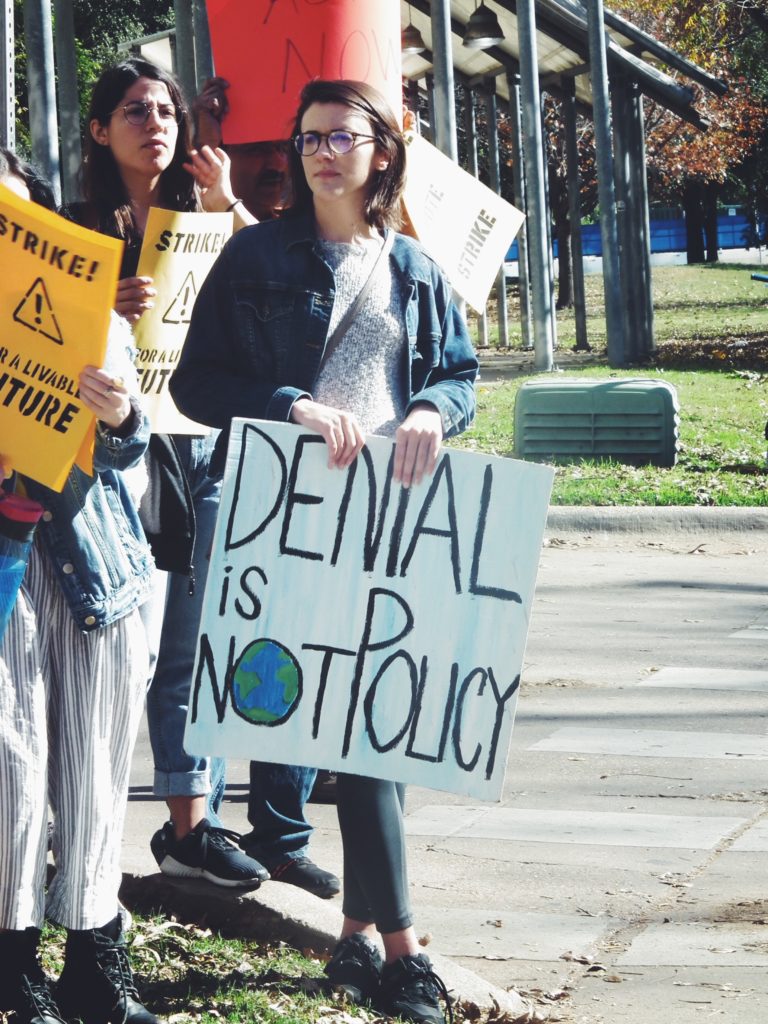
Branch Out spoke with Kaya Epstein, an activist and current student at the University of Texas at Austin. She filled us in on what was going on campus and what students were doing about it. It all comes down to an ‘Equitability Deal’ that would be similar to AOC ‘Green New Deal’.
“It’s an uphill battle, but we are in the process of making it happen, many of us as students have come together and we are figuring out what would be our best strategy.
We tried reaching out to the ‘Board of Regents’, we attended their meetings but at first they brush us off and LAUGH’
By the second time we tried they didn’t let us make our statement.’
We’re trying to gather as much student presence as possible, built a coalition that it’s not just me but SFFC, YDSA chapter, Code Pink, UT Austin Dissenters and so on to have direct action towards to board and also working alongside The Student Government.
We’re trying to collectively get behind the idea, there is also the Campus Environmental Center and the Sustainability table, yes for now its all a work in process but we’ll stay FIGHTING because if we create a change such as this for UT Austin, it will not only benefit this campus, it will do so as well to all the others. To which we’re in the process of reaching out to as well.
These are unclear times for this due to the COVID-19 that we’re currently dealing with, unfortunately also UT has a new administration , the wind energy sector grew by an 18% and it created JOBS so we know WE CAN ACHIEVE IT AND WE WILL”
Another Organisation within the campus is Students Fighting Climate Change, SFCC. Branch Out spoke to SFCC President Kristine Januskaite:
“We started our goals for the activism campaign, pushing towards divestment but at the time it seemed like a big monster to tackle. We already had Friday strikes at the tower but we wanted to take that and shift it to mean something.”
They started this semester reaching out to faculty and staff members and Luis Camarena from the Student Faculty wants to open up a committee that deals with the issue and get funding by working alongside organizations throughout the city.
SFCC wants to get a public statement that announces the reality of the climate crisis and that UT has a part to play creating a climate action plan.
Shyann Walker, A UT student and activist with SFCC and C4 Action Network said:
“By reaching to faculty we found out that other organizations are reaching out as well and some of them are trying to get the word across because UT research campus is getting another supercomputer by 2024 and is going to need another power plant. They’re currently running energy models to try to come up with a plant plan so we’re hoping is more towards renewables because we FEAR it might be towards buying another plant”
The University of Texas is sitting on a pile of green paper from the fossil fuel industry and it does not like it when people talk about it and keeps most of the information hidden, according to the students we talked to. But what UT does not realize is that it actually can become a leader if it goes through with divestment.
Kristine Januaskaite added: “I work for ‘Texas campaign for the environment’ and we have briefings from economists, saying ‘it’s a dying industry’ but people are still caught up to the fact ‘We’re going to lose jobs.’
Here is a video that University Students throughout the country, also known as The College Climate Coalition, created alongside the Sunrise Movement. It’s titled ‘Nobody Wins Without Fossil Fuel Divestment’:
This video was created after Harvard and Yale students, last year (2019) got together and disrupted a football game between the Ivy League schools to finally divest their schools from Fossil Fuel.
Sounds pretty good and seems like we’re winning but there’s still a long way to go. Even though there have been achievements with a noticeable impact, The Fossil Fuel industry is fighting back, so it’s up to climate activists to keep up the pressure.
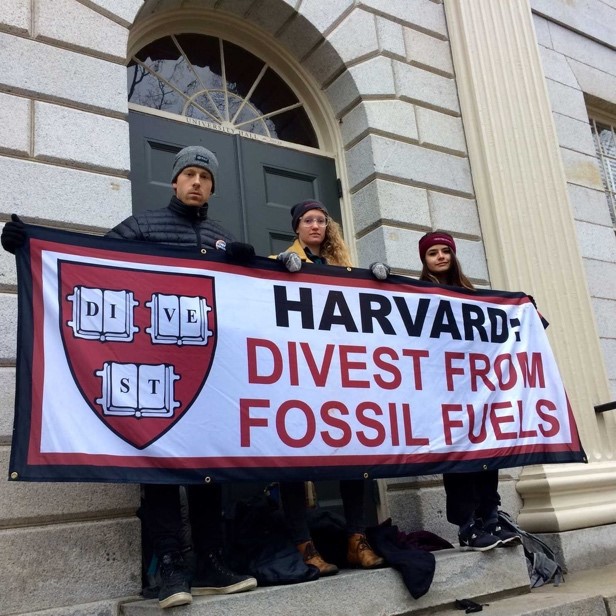
Grassroots activism in fossil fuel country
The city of Austin is the Mecca for environmental movements in Texas; we have many student, national, and even global organizations.
The Sunrise Movement ATX hub, 350 Austin, SFCC, Austin Climate Coalition, DSA and a lot more have grown strength in numbers of citizens that are tired of having to fight for basic rights and needs.
On December last year, we all got together – myself included – and we marched from Austin City Hall to the Austin Energy offices to demand renewables by 2027 with chants like ‘No more coal, no more oil, keep your carbon in the soil,’ ‘WHAT IS YOUR PLAN’ and ‘Which side are you on?’
The Sunrise Movement wrote a letter to the Austin Energy office that was written from the perspective of those most affected by the climate crisis.
“We write this letter to ask that you live up this commitment and resource planning working group process as democratic as possible…
Our goals for Austin are to make climate change an urgent priority, transition the city to 100% renewables by 2027, as quickly as possible while ensuring a JUST transition and END to the CORRUPTING influence of FOSSIL FUELS on our politics
WE ARE SCARED about what this climate crisis means for the people and the places we love”
Here you can find a couple of videos I took:
Carlybelle Jones, Activist with the Sunrise Movement reads the proposition letter to The Austin Energy Resource Planning Work Group
Activists outside the Austin Energy offices on December 6th last year
Austin Energy: “There’s a process if you follow this instructions manual, we’ll undoubtedly get back to you, as we always do”
Yes, the coalition of climate action groups has gone through it!
The time for delay is past. Extreme weather and mass extinctions show that things are already way out of hand because for decades, and no action has been taken. There are people and entire ecosystems dying.
We have a pandemic going on that seems to not come to an end but grow stronger as days pass by, but you may be wondering what does this have to do with the climate crisis. Branch Out has previously reported on the myriad of interconnection with COVID-19 including deforestation being the major cause of infectious disease, and air pollution leading to many diseases that make someone more at risk for serious complications of COVID-19. The diseases people living near drilling sites are getting are also affecting people of color at a higher rate because they are more likely to live in these areas due to the history of racial housing discrimination.
As we fight back this pandemic it is crucial that we get fresh air, go outdoors, exercise or simply take a stroll in our backyards or even in a safe area in our neighborhoods. For people living near Petrochemical plants and refineries, especially in the Houston area, finding a place like this can be extremely challenging.
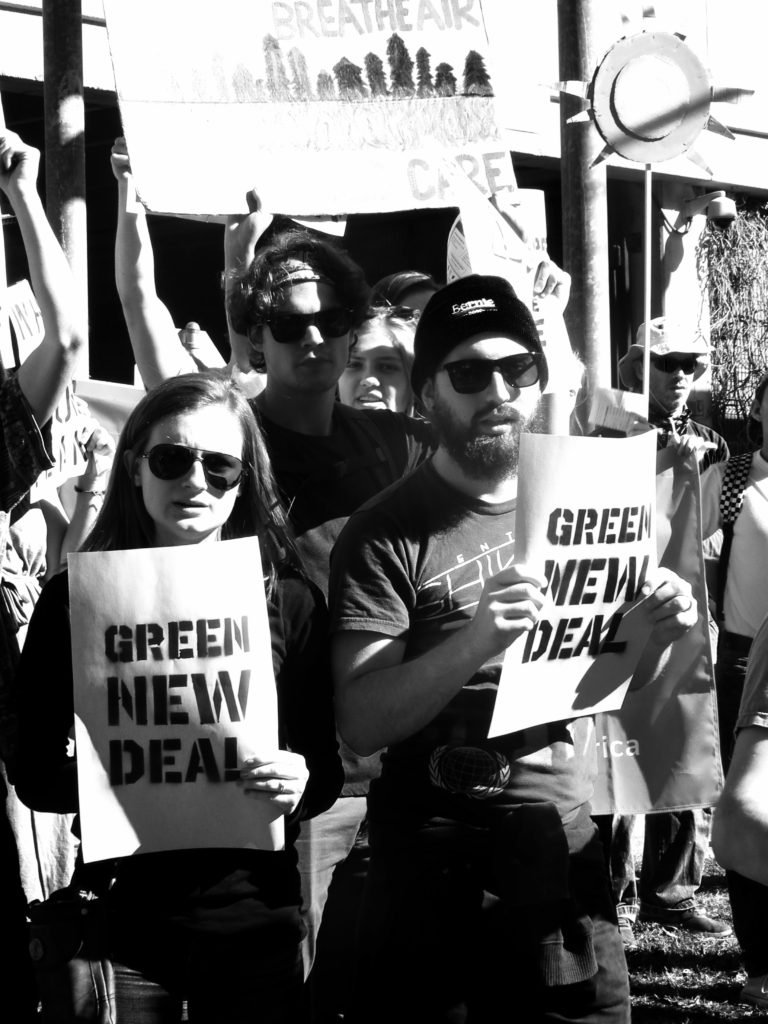
Many of us Texans have children and playing outdoors is not only part of their lives, it is ideal for their physical and mental well being. This is something no one and nothing should take away from them. It comes down to basic human rights, not getting unnecessary hair cuts. We think that by social distancing from others, avoiding going out when not required and washing our hands we’re not putting ourselves and others at risk. But in fact, those are only a few factors of what we’re dealing with.
Fossil fuel divestment could have a ripple effect that would lessen the pollution across the state and the country, which would make respiratory illnesses less severe in addition to changing the tide on climate change.
That’s where our voices come in and fight for what we shouldn’t be fighting, for what should be our right: a healthy and sustainable planet.
“As the population in Texas becomes younger and more diverse, the political landscape is changing. I was us to become a state that supports workers’ rights and green energy jobs. WE HAVE THE RESOURCES and the people to make 100% renewable energy a reality for this state, but we’re going to have to fight for it.” Katie Horstman – Sunrinse ATX
“I thin its important that people know that a greener future is NOT OUT OF REACH, we already have the resources for it and at this point its a political fight, it WON’T cause job loss; ITS A SHIFT” Kristine Januskaite – SFCC
“It is important to realise the crisis is going to HAPPEN, its heading its way pretty rapidly and I’d like people to know if we DONT make CHANGES, things we’ll get pretty bad. They think ‘ Oh Climate is changing but it won’t affect me’ and that’s absolutely not the case. Take Houston for instance, the water will and IS RISING” Theo Schiotz – SFCC
